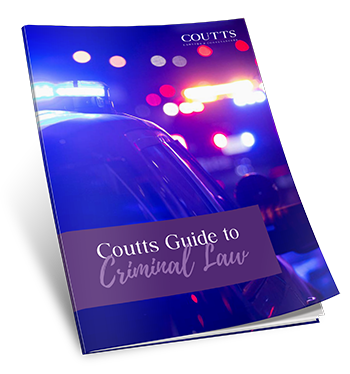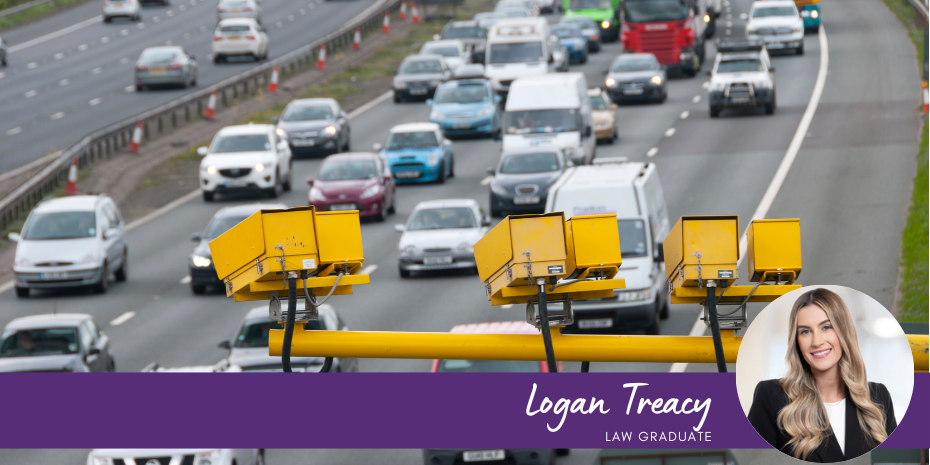We’ve Got You Covered
At Coutts, we offer expert legal representation for individuals facing Prohibited Weapons charges. Our experienced team is well-versed in handling various cases, from possession of unregistered firearms to dealing with prohibited firearms. We understand the detailed nuances of weapons law and are committed to defending your rights. Our approach is thorough, emphasising in-depth evidence analysis, strong legal arguments, and strategic defence tactics to work towards a favourable outcome.

Luisa Gaetani
Partner
Book Your Prohibited Weapons Consultation Now
What is a prohibited weapon?
Under Section 7 of the Weapons Prohibition Act 1998 it is an offence for a person to possess or use a prohibited weapon unless they are authorised to do so under a permit. In addition, anyone who has a permit but possesses or uses the weapon for a purpose other than the purpose for which they have the permit is also guilty of an offence. Due to Australia’s commitment to eradicate unlawful possession of guns, the maximum penalty is quite severe, and if found guilty the offender could spend up to 14 years in jail.
Part 4 of the Weapons Prohibition Act 1998 deals with the sale and purchase of prohibited weapons and similarly carries maximum penalties of extensive imprisonment terms. How we can help you:
Our team is experienced in the following areas of firearm and prohibited weapon offences:
- Possession of an unregistered firearm
- Firing at dwelling houses or buildings
- Possession of an unlicensed firearm
- Possess prohibited firearms
How can Coutts help?
Contact our experienced Criminal Law team at Coutts for expert legal representation and advice. Defend your case effectively. Contact us today!
What to Expect with Coutts Lawyers
Step 1: Initial Contact
Reach out to Coutts Lawyers via our website, phone, or in person. Briefly describe your matter.
Step 2: Consultation Appointment
Schedule and attend a meeting with a Coutts lawyer to discuss the specifics of your matter and desired outcomes.
Step 3: Information & Legal Advice
Share all related documents and information. Your lawyer will review everything, clarify aspects as needed, and then advise on the best action course.
Step 4: Action Plan Development
Based on the advice, an appropriate action plan will be formulated. This may involve communication, documentation processes, or further legal steps.
Step 5: Implementation
Execute the action plan, addressing a range of legal scenarios as necessary.
Step 6: Resolution & Closure
Navigate towards a resolution, with the path determined by the nature of the matter. Your Lawyer will outline any final actions or considerations.
Book Your Prohibited Weapons Consultation Now
Introducing Luisa
Your Compassionate Lawyer
Meet Luisa, a Partner at Coutts Lawyers & Conveyancers, and an Accredited Family Law specialist. Luisa is the head of our esteemed Family Law & Criminal Team. Boasting over a decade of expertise, Luisa blends sensitivity with practicality, forging deep connections and trust with her clients. Her reputation as a foremost authority in Criminal and Family law is well-deserved.


Connect with Luisa Today
Multi Award-Winning
Law Firm

Prohibited Weapons FAQ’s
Obtaining a permit involves a stringent application process, including thorough background checks, the submission of valid reasons for requiring the weapon, and compliance with specific conditions and restrictions.
If wrongly accused, it is crucial to seek immediate legal representation. The accused must work closely with their Lawyer to gather any available evidence to counter the allegations effectively and ensure their rights are protected throughout the legal proceedings.
Yes, the type of prohibited weapon and the circumstances surrounding its possession or use can influence the severity of the penalties imposed. More dangerous or lethal weapons typically attract more severe punishments.
Appeals against convictions require meticulous examination of the case, identifying grounds for appeal such as errors in legal proceedings or the imposition of excessive penalties. Experienced legal representation is important in navigating the appeals process successfully.
A prohibited weapon charge can have enduring impacts, including difficulties in securing employment, limitations on travel, and social stigma. It underscores the importance of robust legal defence in mitigating the long-term consequences of such charges.
Download your FREE Criminal Law Guide!



